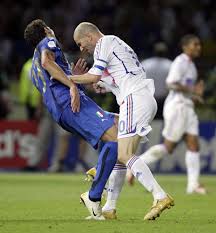I've had a great time connecting with people and sharing memories in this blog - I don't pretend to be any sort of great writer, but somehow I've attracted many fantastic readers, and all of your comments, messages, and compliments have delighted and sustained me through the past couple of years. If I've annoyed, irritated, or squandered the time of some of you, I apologize.
The reasons I'm quitting the blog are several. The main reason is that I'd like to make better use of my own time. Practicing and performing on the double bass have always been my focus and greatest time commitment - if I hope to make a permanent occupation of it, though, I need to advance my career through even more committed work.
I've also been reading a book of essays by Wendell Berry, The Art of the Commonplace. If anyone wants to read the book that killed hella frisch, this might be the one. (I don't know if that's a reason for praise or condemnation - probably the former.) It's one of the most eloquent and persuasive books I've read, and what Berry has to say about modern culture and economics should give everyone pause. I'll quote a rather long passage from an essay defending his abstention from computers, since it has so influenced my thinking:
Some of my critics were happy to say that my refusal to use a computer would not do any good. I have argued, and am convinced, that it will at least do me some good, and that it may involve me in the preservation of some cultural goods. But what they meant was real, practical, public good. The meant that the materials and energy I save by not buying a computer will not be "significant" They meant that no individual's restraint in the use of technology or energy will be "significant." That is true.
But each one of us, by "insignificant" individual abuse of the world, contributes to a general abuse that is devastating. And if I were one of thousands or millions of people who could afford a piece of equipment, even one for which they had a conceivable "need," and yet did not buy it, that would be "significant." Why, then, should I hesitate for even a moment to be one, even the first one, of that "significant" number? Thoreau gave the definitive reply to the folly of "significant numbers" a long time ago: Why should anybody wait to do what is right until everybody does it? It is not "significant" to love your own children or to eat your own dinner, either. But normal humans will not wait to love or eat until it is mandated by an act of Congress.
- "Feminism, the Body, and the Machine" by Wendell Berry, p. 78-79
I'm not sure if Berry's ideal of zero computer use is possible or desirable for everyone, but it struck me that I could at least reduce mine. The impact on worldwide energy use may not be significant, and I'm fortunate enough to not pay my own electricity bills; but in conserving time and energy, I can make a very positive impact on my own life. Writing this here is no doubt the height of hypocrisy; the last few weeks, though, I have cut down my computer use considerably, and the change has been a good one, I think.
I probably would not be writing this post if I didn't see this as cause for celebration, not sadness. Of course, there are many people who I wouldn't have met without this blog, and I hope we can continue to keep in touch. If anyone would like my phone number or mailing address, please e-mail me and I'll send them. I'm hoping to return to letter writing, having abandoned it the last few years. And so it would be wonderful to turn some of my blog visitors into pen pals.
Best wishes and thanks for reading!




